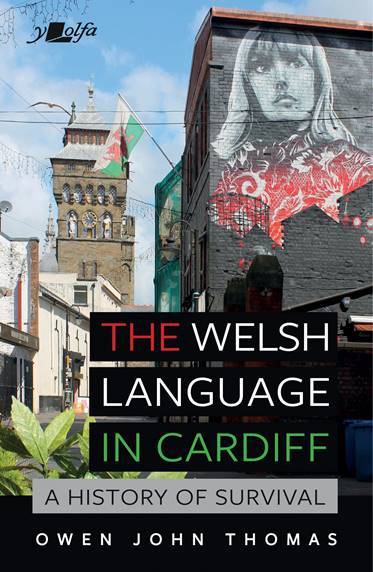Demolishing the myth of Cardiff as an English-language city
A new book published this week, The Welsh Language in Cardiff: A History of Survival, demolishes the long-believed myth – that has been perpetuated by many – that Cardiff has always been an English-speaking city.
Author Owen John Thomas, Cardiff born and bred, has used a wide variety of sources, including personal and field names, court records, diaries and legal documents to research the use of Welsh in the Cardiff parishes. With the evidence found, the author shows conclusively that while the Welsh and English languages waxed and waned in the small walled town of Cardiff, both have always been present. And even as late as the early 20th century, Welsh was the majority language in some communities that make up the city.
Moreover, in The Welsh Language in Cardiff we learn that Cardiff's labouring classes and prostitutes living out their lives in the slums spoke Welsh, as well as the city's middle class and sober chapel-going Nonconformists.
Owen John Thomas said:
“This is the fruit of research that has been a labour of love over many decades and that led to my Master’s degree in 1990 on the history of the Welsh language in Cardiff.
It was my intention to write this book in Welsh – a language I learnt in my late 20s and hold dear to my heart, but illness has meant that I have struggled to do so. Despite this frustration, I hope that people who are not fluent Welsh speakers will now have the opportunity of sharing the passion I have for the Welsh language in Cardiff, the Welshness of the city and the surrounding area and the history of Welsh identity. They are inextricably linked.”
Since writing the book, Owen John Thomas has sadly been diagnosed with Alzheimer’s disease.
Rhys ab Owen, one of the author’s sons, said:
“The family is very pleased that this book has been published, and that Dad’s research will be read all over Wales and beyond. Hopefully it will put to bed the myth that the Welshness of Cardiff only occurred in recent years. The Welsh language has a long and rich history in our capital city which should be embraced and cherished.”
The Foreword has been written by fellow Cardiffian Vaughan Roderick, BBC Wales’ Welsh Affairs Editor. In it, Vaughan writes:
“The author's study of slander cases, the only court records which record the language used by the offender, is both illuminating and hugely entertaining, revealing as it does that drunken altercations were as much a part of life in the small seaport as they are in the modern city!”
Vaughan ends by stating:
“Rightly, the book ends on a hopeful note. Presumably out of modesty, the author doesn’t point out that the survival and growth of Welsh in the city is largely due to a small but indomitable group of campaigners, with Owen John Thomas himself in the vanguard.”
The Welsh Language in Cardiff includes a brief history of Wales up to the Acts of Union to provide context for those not familiar with Wales’ history. Owen John Thomas examines the ordinary folk and their everyday use of the Welsh language, Welsh in the houses of worship before moving on to note the growth of Cardiff, its impact on the Welsh language and the subsequent Anglicisation of Cardiff and surrounding parishes. The final chapter looks at how the Welsh nation was rebuilt with Cardiff as its new capital, and the integral role the Welsh language played in that process.
